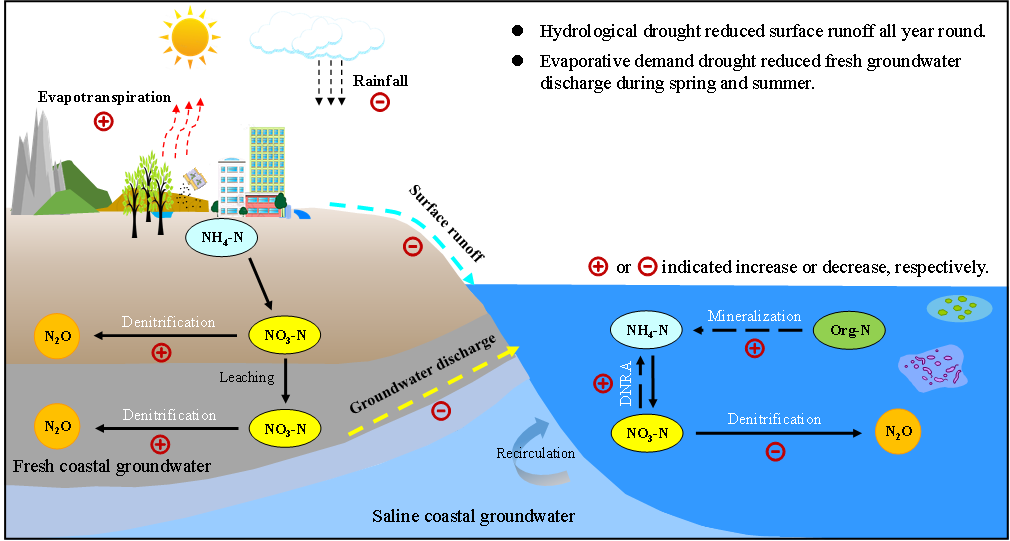Mingzhen Zhang, Dan Yu, Yiqi Yu, Ruifeng Yan, Yasong Li, Weijie Gong, Kai Xiao, Shaobin Li, Nengwang Chen*
Water Research
https://doi.org/10.1016/j.watres.2024.122362
Published: 14 September 2024
Abstract
Severe droughts are increasingly prevalent under global climate change, disrupting watershed hydrology and coastal nitrogen cycling. However, the specific effects of drought on nitrogen transport from land to sea and subsequent nitrogen dynamics remain inadequately understood. In this study, we evaluated the consequences of the 2020–2022 drought on nitrogen supply and N2O emissions in Xiamen Bay, Southeast China. The results showed that drought significantly reduced annual NH4-N, NO2-N, and NO3-N concentrations in Xiamen Bay by 49.4 %, 32.1 %, and 40.3 %, respectively, compared with the pre-drought year of 2019. The decline in NH4-N concentration was mainly attributed to reduced surface runoff across all seasons. NO3-N and NO2-N concentrations declined only during spring and summer, primarily due to increased potential evapotranspiration (PET) hindering nitrogen supply via groundwater and concurrently enhancing land denitrification. Annual N2O emission from Xiamen Bay decreased by 40.0~72.7 % during the drought, highly correlated with the decline in the concentrations of NO3-N, DIN, and DTN (p < 0.001). Comparative analysis revealed that NO3-N concentration exhibited consistent negative linear regressions with PET and declined as evaporative demand drought conditions worsened across Xiamen Bay, Sansha Bay, and Chesapeake Bay throughout 2010–2022. NH4-N concentration showed a positive regression with river discharge in Xiamen Bay, but negative regressions in the other two bays. Our results indicates that drought reduces N2O emission primarily driven by nitrate substrate reduction in the bay. This study provides new insights for predicting coastal nitrogen dynamics and greenhouse gas emissions under global environmental change.
